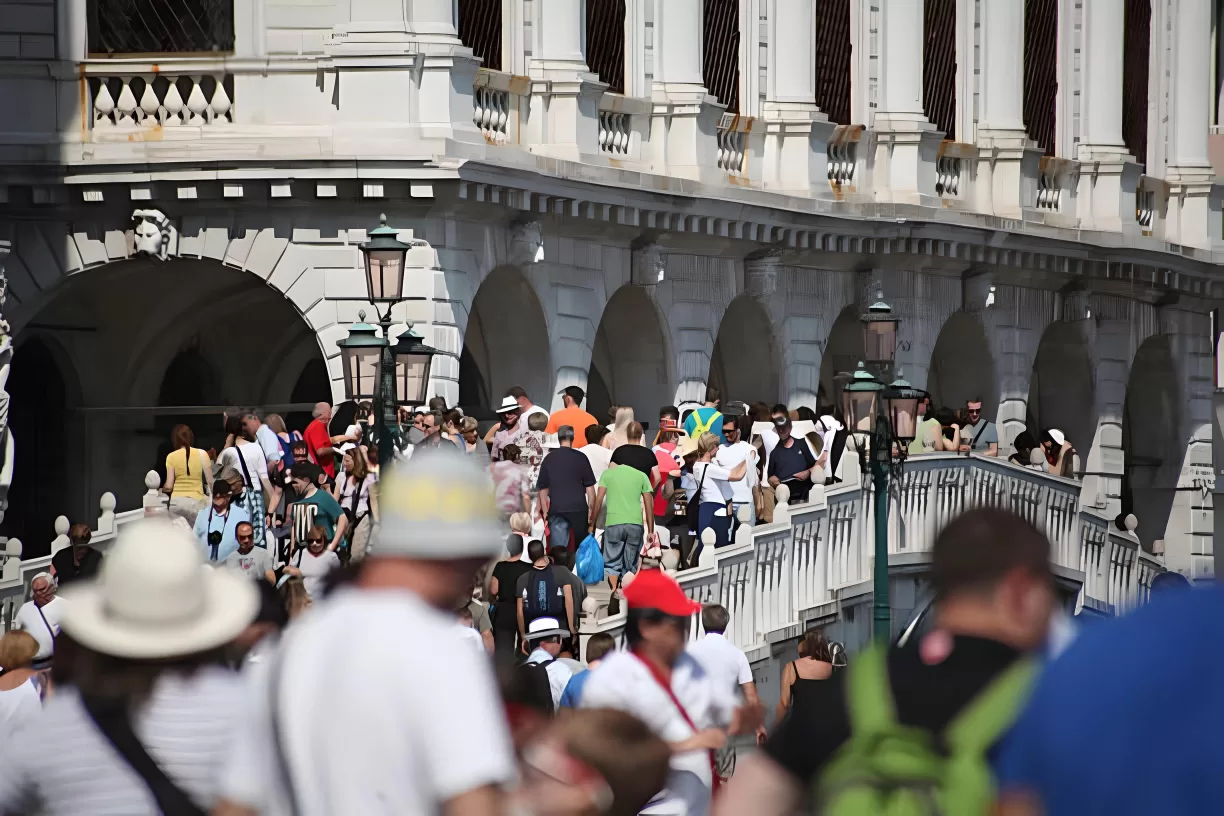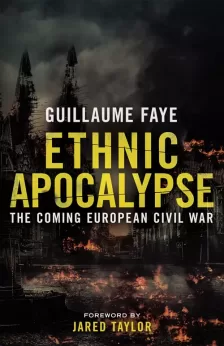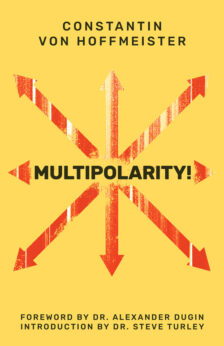Truth, beauty, and goodness are eternal, immutable values. The greatest periods of artistic expression known to mankind were periods where these values were dominant but, most importantly, dictated top-down to society. Kings spent enormous amounts of money on clothing, art, jewelry, architecture, parks, landscaping, etc. They wanted to build and create things of exceedingly high aesthetic value, as the grandeur of their works had to reflect the divine right of kings. On top of that, kings were vain enough to be sensitive to the achievements of other kings and did not want to be lesser kings. This often came at the expense of projects that might have alleviated the circumstances of the plebians, but, as a result, we now have a towering European legacy of unfathomable magnitude.
This top-down imposition of aesthetics bequeathed us statues so delicate they make solid marble look translucent, or the most fragile of details, like a fishing net draped over the anatomically perfect human of Francesco Queirolo’s masterpiece Il Dissinganno, reflect nothing short of divinity. Our aristocratic forebears gave us unbelievably gorgeous palaces, churches, cathedrals, and even entire cities. The Sistine Chapel, The Last Supper, the works of the Dutch masters, universities, and libraries all came to be because of the money of royalty attempting to build the best and most beautiful things.
This aesthetics of kings trickled down into the lives of the commoners. It is striking to see that the poor, more than a hundred years ago, were often more sharply dressed than many modern middle-class people. The rule of kings has gone, and the masses have now taken over. And with this inversion, there also occurred a total wretched inversion of the value of truth and aesthetics.
Truth
If Jesus returned, he would need an advertising agency, PR team, lawyer, website, telemarketers, fact-checkers, and service desk to even be remotely acknowledged as a prophet.
What has become of a society that allows its so-called “leadership” to lie through its fucking teeth and get away with it? In fact, every time the establishment lies straight to their face, the hordes of morbidly defunct yay-sayers spread their butt cheeks a bit further apart, so they can take it even further up the ass. No values apply, just coupons, discounts, sales, and super sales to satiate the unending hunger for consumerism. Woe he who, in the pursuit of truth, gets in the way of the masses en route to the shopping mall or Taco Bell and throws a big monkey wrench in their life of “convenience.”
If Jesus returned, he would need an advertising agency, PR team, lawyer, website, telemarketers, fact-checkers, and service desk to even be remotely acknowledged as a prophet. No, sir, no prophet clad in simple garb and sandals will do. He will simply blend in with all the fentanyl zombies or faithful Quran observers that now populate our once glorious cities.
In this kingdom of emptiness, materialism is all that is required to explain the world. We cannot know the truth and we cannot truly know the world. Life is accidental and arbitrary. It has no meaning; there is no such thing as a mind; God is dead.
What function can truth even fulfill in such a worldview? Only as a “statistically significant” result of the endless modeling of a materialist world. Even though many a royal court was a hotbed of debauchery and vice, at least under the rule of an absolute monarch there was no relativism or nihilism. The world to them was very real and they chose to be excellent among the most turbulent of times in Europe. Famine, pestilence, war, and natural disaster did not stop them from aiming high. Their world was a reflection of the law of struggle, of the value of truth.
Beauty
Exploring has … become a mundane “viewing” of the divine splendor that emanates from the magical Himalayas.
Even the holiest of architecture, the natural world as the work of the Creator, is defiled by the masses. The trend of “overlanding” has taken the web and world by storm. Overlanding is exploring the world, usually with four-wheel drive cars. This phenomenon is not problematic in itself. However, the quest for likes and views has driven many tourists in their cars over terrain that is illegal to traverse. They have lit fires in strict no-fire zones, left trash in firepits, and driven through precious moss landscapes and vulnerable rivers. This has gotten so bad that many formerly freely accessible roads and places are now closed to explore.
Mount Everest is another victim of the mass of tourists. So many now have the bucket list, money, and time to climb such mountains. The amount of trash left by these mountain expeditions is staggering. On certain days, there is an actual traffic jam of climbers who want to get to the top. This has nothing to do with the Faustian exploration of the natural world that fueled the discoveries of our forebears. Exploring has thus become a mundane “viewing” of the divine splendor that emanates from the magical Himalayas. Another box to tick, another mere item to cross off the list.
Goodness
Goodness has not vanished, but it has disappeared as a horizon for our Western societies. Derrida and Foucault, among others, have convinced our societies there are no values, that nothing matters, and that everything is power. The deconstructionists and post-modernists have instigated the war of all against all. Everyone is oppressed by everyone else. This has given the mass of people in the West a very “looking out for number one” kind of outlook on life. Goodness is irrelevant in such a society. Only what is good for me, the oppressed, is what matters. It is a regression into a jungle mentality. And so, we now have looting, rioting, public drug use, public defecation, rape, crime, and many more such modern delights.
In many ways, goodness, although an ultimate value, was given to society to strive for by the aristocrats. Their ideas and dedication to goodness trickled down to the bourgeoisie and then to the commoners. This culminated in the Western European societies of the nineteenth and twentieth centuries, where there came to be a large middle class, who were very well-behaved towards each other and upheld high standards about truth, beauty, and goodness.
After World War Two, Liberalism came out victorious and became the dominant ideology of the West. This created an atomized society of individual economic agents and destroyed the notions of Volk and nation. This left the mass of atomized individuals vulnerable to the effects of post-modern nihilism. Like a loose thread of a knit sweater, society is unraveling and shall keep doing so until all notions of truth, beauty, and goodness are abandoned.
Those who want to be “men standing among ruins” would be wise to make the eternal values of truth, beauty, and goodness their aim in every undertaking they pursue. Only the ones who know and internalize this fact can lift the remnants of our collapsed society from the ashes and start anew the European dream.







